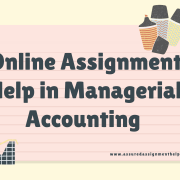Writing a reflection – Approx. 2000-3000 words,50% weighting What is the purpose of reflection and how does it fit with this unit of study? For this assessment, you have been asked to write a reflection on the literature. Reflective practice is considered an important skill to tertiary educators, but many students remain unclear on what is expected of them. David Boud, a well-known academic in the field of tertiary education, explains reflection as: ‘[A]ctivities .in which individuals…explore their experiences [to gain] new understandings and appreciation.’ (Baud et al,1985: 59). Reflective practice connects our personal or emotional understandings to what we have learned. It goes beyond traditional education and encourages a lifelong learning approach where continuous development is enabled. Reflection encourages us to scaffold classroom learning with other learning or knowledge gained outside of the class. This kind of learning deeply embeds concepts, in contrast to rote learning which relies on memory. This assessment is a little like a literature review, but it does not have some of the elements of a traditional review. You do not have to search for the articles, they are provided to you. There is no ‘thesis’ or argument that you are hoping to mount or counter through the literature. Your personal reactions to the literature are essential to a reflection, whereas it Is possible for a literature review to be completed in a more ‘objective’ manner. I am looking to you to make your opinion apparent. The style of writing for a reflection is likely to be less formal than in a traditional literature review.
For the purposes of this assessment, reflection is understood as a creative process that encourages you to connect your learning in this Unit with your own experiences. Reflection is a process that is happening all the time, but reflective practice brings a conscious recognition to this process. Through drawing our attention to rflct1on, we increase our ability to learn and transform our thinking and perspectives. This 1s where deeper and more critical learning can occur. We can challenge our habitual thought processes and more deeply engage with the readings.
Successful reflection starts with a consideration of why reflection is important. In this Unit, have been asked to engage with some difficult readings. These may lead you to reconsider the way you view the law. This goes beyond the application of cases and legislation to problem scenarios problems in society. This can involve interdisciplinary perspectives and breaking down the silos around “the law”. Reflective practice is also about acting ethically. Ethical practice can arise from recognising other people’s perspectives and developing empathy. Legal roles often involve engaging with people who are experiencing difficulties and need advice and support. Recognising other people’s perspectives can help in the practice of advocating for other human (and non-human) actors. It can also help us examine the institutional or systemic problems that may be addressed (to solve problems before a dispute ends up in court). In summary, reflective practice is important in this Unit and for us as learners, as it assists in understanding at a deep level. What do I reflect on, and how? You can choose any of the readings that I have uploaded to the reading list. When you read the texts in your reading list for Legal History, you will naturally gravitate toward some of them. Whether you agree with these or not, you will have a strong response to them. These are good readings to analyse for this assessment. Why did this paper or other resource interest you? Did it resonate with your own experiences or prior understandings of the topic? Or is it interesting because it is an area you know little about? Your reflection may begin with a description. The description is a good starting point, but be careful not to spend more than a small percentage of your word count on it. A description may be useful to set the scene for your reflection, but the description is not able to covey the deeper levels of thinking which are required in a reflection. There are no specific questions that need to be answered in your reflection, and creative approaches are supported. If you are stuck, you might like to consider: 1. Who is the author? 2. What is the document? Is it a ‘primary’ source, or is it ‘history’ in the sense of being a representation of the past? 3. When was it written? Did the author have a purpose in writing it? 4. Context in terms of the political/historical environment the writing comes from. Have things changed since the piece was written? How? 5. Does the piece affect you in any way? Does it change your perspective? I will not be basing the marking process on the answering of these questions -they are for guidance only. There have been questions posed throughout the Unit Study Guides and in the seminars which could be explored if seeking further inspiration. Nb You do not have to reflect on all of the readings. Four or five will be plenty! Remember, the exercise has a word limit of 2000-3000 words. Further, it is not anticipated that you will closely read everything that is uploaded. A wide variety of texts are made available so you can find ones that you can relate to.











